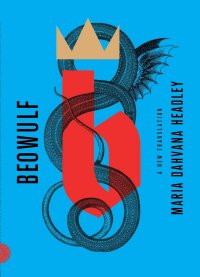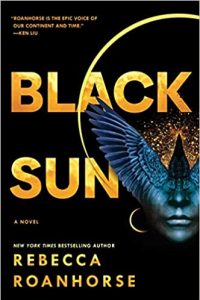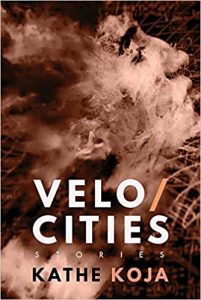The Year in Review: 2020 by Paula Guran

I often shy away from these annual summations. Even in late December, I haven’t seen everything, so it is never truly complete. Plus, I always fear I will forget something important. Nevertheless, I’m giving it a shot this year. After all, despite 2020 being a horrific year in the real world, there was a lot of great horror and other dark fiction.
My favorite debut of the year is most likely the most overlooked book included here. Londonia (Tarturus Press) by Kate A. Hardy is SF, but its dystopic world is undeniably dark. Set in a richly portrayed 2072 London, where life is nasty, brutish, short, and Dickensian, it is an intelligent commentary on where our own society may well be headed, but its page-turning strengths are the story and splendidly executed characters. Plus, the author’s superb invention and use of future language is brilliant.
Novel The Only Good Indians (Saga) by Stephen Graham Jones finally introduced the long-respected author to a more mainstream audience. Always an excellent writer, Jones attained a masterpiece with this one. The same is true for the subversive and sublimely entertaining Mexican Gothic (Del Rey) by Silvia Moreno-Garcia. The bestseller is the author’s sixth published novel. Both books have all the makings of classics.
 Speaking of classics, Maria Dahvana Headley took a bona fide classic and reshaped it for our times with Beowulf: A New Translation (MCD x FSG Originals). It’s a stellar achievement that is sure to become the epic poem’s most popular version.
Speaking of classics, Maria Dahvana Headley took a bona fide classic and reshaped it for our times with Beowulf: A New Translation (MCD x FSG Originals). It’s a stellar achievement that is sure to become the epic poem’s most popular version.
N.K. Jemisin, already rightfully celebrated for her genre-redefining oeuvre, started a new dark fantasy series with The City We Became (Orbit). The novel proved even timelier than anticipated: New York City is menaced by a sinister threat we can’t help but (now) parallel with coronavirus.
Elatsoe by Darcie Little Badger (Chronicle) is another notable debut. Intended for young adults, the novel is set in an America much like our own, except much of what we consider “paranormal” is normal. Both protagonist Elatsoe – Ellie – a Lipan Apache 17-year-old, and the book itself combine horror and humor to winning effect.
Cherie Dimaline is another Indigenous author with a stand-out novel: Empire of Wild (William Morrow). She combines the story of grief-stricken Métis woman, Joan Beausoliel, with a legendary monster, the rogarou, for an intimate yet epic novel.
 Black Sun (Gallery/Saga) by Rebecca Roanhorse is a dark epic fantasy set in a vivid world inspired by Pre-Columbian American civilizations. Corruption! Vengeance! Trauma! And also, to quote the author, “a story about a boy who plays with shadow and talks to crows going on the road trip of a lifetime with a party girl.”
Black Sun (Gallery/Saga) by Rebecca Roanhorse is a dark epic fantasy set in a vivid world inspired by Pre-Columbian American civilizations. Corruption! Vengeance! Trauma! And also, to quote the author, “a story about a boy who plays with shadow and talks to crows going on the road trip of a lifetime with a party girl.”
(If you haven’t caught on, it seems 2020 was a good year for Indigenous authors.)
Sam J. Miller’s The Blade Between (Ecco) is beyond dark; it is stygian. There’s a supernatural element, but the real monsters are drugs, despair, and gentrification. Complex and enthralling, this December release may not start making an impact until 2021, but it’s a big boom.
I’m still sorting through 2020 anthologies, but at least two deserve mention here. Black Cranes: Tales of Unquiet Women (Omnium Gatherum) edited by Lee Murray & Genevieve Flynn is an excellent anthology. Southeast Asian writers consider the “traditional” roles of Asian women and explore what it is to be a perpetual outsider. This is a truly dark one, with “The Genetic Alchemist’s Daughter” by Elaine Cuyegkeng among the highlights.
SLAY: Stories of the Vampire Noire (Mocha Memoirs) edited by Nicole Givens Kurtz offers 28 stories celebrating vampires of the African Diaspora and (cliché that it is) brings new life to an old, if never-dying, trope. I’m still deciding on my favorites from the volume, but “Desiccant” by Craig Laurance Gidney and Sheree Renée Thomas’s “Love Hangover” will be among them.
As with anthologies, I’m still reading single-author collections from 2020. And, of course, they are often a mix of genres. Sticking with the dark ones, I can recommend the following (alphabetically by author): Thin Places, Kay Chronister (Undertow); Songs for Dark Seasons, Lisa L. Hannett (Ticonderoga); Velocities: Stories, Kathe Koja (Meerkat); The Heart is a Mirror for Sinners and Other Stories, Angela Slatter (PS Publishing); The Best of Michael Marshall Smith, Michael Marshall Smith (PS Publishing); and The Midnight Circus, Jane Yolen (Tachyon).
 Other than what I mentioned along the way, I won’t attempt to venture into an overview of shorter fiction, but among the outstanding novellas of 2020 were a number from Tordotcom Publishing. I love dark historical fantasy, and Ring Shout by P. Djèlí Clark is a fine example. Set in 1922 Macon GA, some members of the KKK are supernaturally inhuman and demonic. Dire real events of 2020 brought new focus to the police brutality, racism, and injustice of the US and amplified the already-stunning Riot Baby by Tochi Onyebuchi, in which Black rage is funneled through supernatural power. Finna by Nino Cipri is scary blue-collar SF. Stephen Graham Jones presents a convincing and endearing protagonist committing horrific acts with Night of the Mannequins. (His shorter “Wait For Night” at Tor.com is also great; SGJ had a very good year.) Prosper’s Demon is typical of K.J. Parker’s work: droll, inimitable, and chockful of fascinating detail.
Other than what I mentioned along the way, I won’t attempt to venture into an overview of shorter fiction, but among the outstanding novellas of 2020 were a number from Tordotcom Publishing. I love dark historical fantasy, and Ring Shout by P. Djèlí Clark is a fine example. Set in 1922 Macon GA, some members of the KKK are supernaturally inhuman and demonic. Dire real events of 2020 brought new focus to the police brutality, racism, and injustice of the US and amplified the already-stunning Riot Baby by Tochi Onyebuchi, in which Black rage is funneled through supernatural power. Finna by Nino Cipri is scary blue-collar SF. Stephen Graham Jones presents a convincing and endearing protagonist committing horrific acts with Night of the Mannequins. (His shorter “Wait For Night” at Tor.com is also great; SGJ had a very good year.) Prosper’s Demon is typical of K.J. Parker’s work: droll, inimitable, and chockful of fascinating detail.
Among novellas not from Tordotcom, Sarah Langan’s “You Have the Perfect Mask” (Lady Churchill’s Rosebud Wristlet #42) is one of the first stories I’ve read that grew directly out of the COVID-19 pandemic. (I’m sure we will be seeing more.) Set among the elite of a near-future New York City, the novella is both a thoughtful tale of conscience and an examination of the sociocultural world of 12-year-old/turning-13 girls.
In 2020, a year in which real fears far outstripped the fictional, there will be those who see no worth in dark fiction. But we know better. Dark fiction teaches us how to discern and survive real horror, how to fight evil and, even if we don’t always win, persevere. The last year made horror a more needful thing than ever.
Paula Guran has edited more than 40 science fiction, fantasy, and horror anthologies and more than 50 novels and collections featuring the same. She’s reviewed and written articles for dozens of publications. She lives in Akron OH, near enough to her grandchildren to frequently be indulgent.
This review and more like it in the February 2021 issue of Locus.
 While you are here, please take a moment to support Locus with a one-time or recurring donation. We rely on reader donations to keep the magazine and site going, and would like to keep the site paywall free, but WE NEED YOUR FINANCIAL SUPPORT to continue quality coverage of the science fiction and fantasy field.
While you are here, please take a moment to support Locus with a one-time or recurring donation. We rely on reader donations to keep the magazine and site going, and would like to keep the site paywall free, but WE NEED YOUR FINANCIAL SUPPORT to continue quality coverage of the science fiction and fantasy field.
©Locus Magazine. Copyrighted material may not be republished without permission of LSFF.








